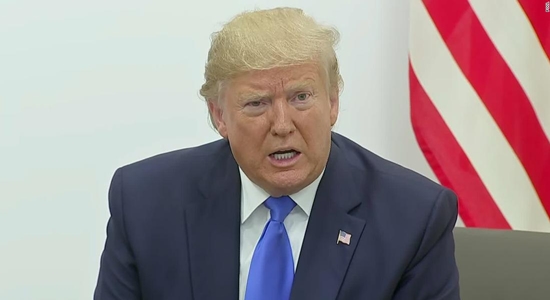
As the Chinese dictator kicks more generals out of the People’s Liberation Army for corruption and/or not being fully on board with Xi Jinping’s strategy and goals, Xi is also again telling the world that “Taiwan will surely be reunified” with the mainland.
Are these two stories related?
China does many things to militarily intimidate other countries, especially in the South China Sea. But China’s recent military forays in the Taiwan Strait and propagandistic forays in official statements seems to have a more urgent character than any of China’s recent bullying of other nearby countries.
Two ways to get Taiwan
The Chinese Communist Party has more or less clearly set forth two possible ways of achieving the “reunion” with Taiwan that the CCP calls inevitable: 1) Taiwan voluntarily accepts such a fate, perhaps agreeing to a fake one-country, two-system type deal like the one China negotiated with Britain for Hong Kong; an arrangement that, as in the case of Hong Kong, but faster, would eventually collapse into a one-country, one-system reality. Or 2) China conquers Taiwan by force.
China’s ambitions for Taiwan have a couple of deadlines attached.
One deadline is Taiwan’s January 13, 2024 election.
If in 12 days the Taiwanese voters reject appeasement of China, will China immediately invade Taiwan? Say, on January 14, 2024? A military consultant I will call “Paul” tells me that this is very unlikely. A full-scale invasion would require more preparation than is currently happening. Moreover, if China did proceed to subjugate Taiwan by force, it would probably start with a massive blockade, not an invasion, Paul feels.
Maybe.
The other deadline is imposed by the mortality of Xi Jinping. He’s 70, and some Zhongnanhai-ologists believe that “re-”absorbing Taiwan is such a high priority for Xi that he is determined to accomplish it one way or another within his own lifetime. This deadline is not so immediate, and he seems to be in reasonably good health for an old fat guy. But 70 is not 60 or 50.
Although we know some of what has gone on behind the closed doors of China’s government thanks to a leak of internal documents about the repression of Uyghurs in Xinjiang, we don’t really know why Xi is now purging so many top military personnel. [Later reporting suggests that we do really know. See the CSIS piece “China’s Waterlogged Missiles Don’t Really Matter.”]
Rise and fall
In divining the private thinking of the CCP, we lack the advantage that students of the Third Reich enjoyed after the Allies won World War Two: access not just to several hundred pages of internal government documents but to thousands and thousands of pages of such documents, the documents that are the basis of William Shirer’s magnum opus The Rise and Fall of the Third Reich.
Shire writes that On November 5, 1937, six top military men came to the Reich Chancellery to hear the Fuhrer elaborate his plans for impending conquest: “Field Marshal von Blomberg, Minister of War and Commander in Chief of the Armed Forces; Colonel General Baron von Fritsch, Commander in Chief of the Army; Admiral Dr. Raeder, Commander in Chief of the Navy; Colonel General Goering, Commander in Chief of the Air Force; Baron von Neurath, Foreign Minister; and Colonel Hossbach, military adjutant to the Fuehrer.”
Colonel Hossbach took notes, and his detailed account of the meeting “showed up at Nuremberg among the captured documents.”
Germany needed living space (Lebensraum) in the East, Hitler said. Acquiring it would mean, first of all, forcibly annexing Austria and Czechoslovakia. The armed forces must by ready to act by 1938—the very next year—if possible. But at any rate soon.
The generals had been aware of Hitler’s notions about living space, elaborated a decade or so earlier in Mein Kampf. But now this “piece of propaganda” was taking the form of specific invasion plans.
The realization stunned them. Not, so far as the Hossbach records show, because they were struck down by the immorality of their Leader’s proposals but for more practical reasons: Germany was not ready for a big war; to provoke one now would risk disaster.
On those grounds Blomberg, Fritsch and Neurath dared to speak up and question the Fuehrer’s pronouncement. Within three months all of the three were out of office and Hitler, relieved of their opposition, such as it was—and it was the last he was to suffer in his presence during the Third Reich—set out on the road of the conqueror to fulfill his destiny.
Well, it’s a theory. Or maybe Hitler got rid of Blomberg, Fritsch, and Neurath because they were “corrupt.” Or maybe it’s both. If corruption is a form of improper conduct, what counts as improper depends on the standard of what is proper. And in the Nazi regime, readiness to submit oneself to the Fuhrer and obey the Fuhrer, in whom the collective will was supposedly incarnate, was a paramount moral principle.
Eighty-six years after Hitler shocked his soon-to-be-cashiered generals, Reuters has reported that “Chinese military purge exposes weakness, could widen” (December 30, 2023):
A sweeping purge of Chinese generals has weakened the People’s Liberation Army, exposing deep-rooted corruption that could take more time to fix and slow Chinese leader Xi Jinping’s military modernization drive amid geopolitical tensions, analysts say.
China’s top lawmakers ousted nine senior military officers from the national legislative body on Friday, state media reported, a step that typically precedes further punishment for wayward cadres. Many of these were from the Rocket Force—a key arm of the PLA overseeing tactical and nuclear missiles….
Since Xi took power in 2012, he has embarked on a wide-ranging anti-corruption crackdown among Communist Party and government officials, with the PLA being one of its main targets.
The nine PLA generals removed from the legislature hailed from several military divisions; three were former commanders or vice commanders of the PLA Rocket Force; one a former Air Force chief and one a Navy commander responsible for the South China Sea. Four officers were responsible for equipment….
Beijing did not explain why the generals were removed. Some analysts say the evidence points towards corruption over equipment procurement by the PLA Rocket Force.
Maybe the Reuters reporter is right, and corruption in the sense of lining of pockets at the expense of weapons is all that the PLA generals are guilty of. Maybe Chen Daoyin, formerly a professor of political science at Shanghai University, now a political commentator in Chile, is also right.
Chen told Reuters “that the ongoing crackdown might dissuade Xi from risking serious clashes with other militaries in the next 5-10 years.” He wonders: “How can the generals’ hearts be in fighting, if they are just busy lining their own pockets? Xi now knows that their proclamations of loyalty to the party and to the military ring hollow.”
Maybe. Reuters does not elaborate the evidence of pocket-lining and subpar rockets that would explain the downfall of the generals even though “Beijing did not explain why the generals were removed.” The explanation is plausible. But is it the only possible explanation?





